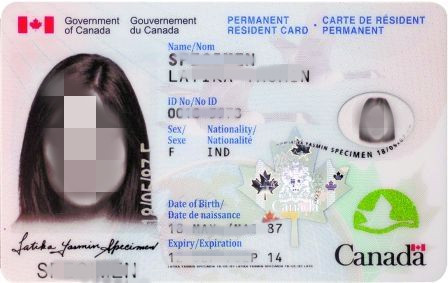What Work Permit Benefits Will Canada Provide To Temporary Work Visa Family Members From January 2023?
What Work Permit Benefits Will Canada Provide To Temporary Work Visa Family Members From January 2023?
Canada has relaxed the policy of opening work visas, and spouses can also work visas, Canada, work visas, visas, Ontario, Ontario, immigration

picture
On December 2, 2022, the Canadian Minister of Immigration Affairs, Tourism and Finance jointly announced that the Canadian government has decided to issue work permits to family members holding temporary work visas, which will enable the spouses of temporary foreign workers and children who meet working age to qualify for work permits.
At this stage, only if the main applicant engages in high-skilled work (originally classified as NOC0, A, B, and is now classified as NOC TEER0, 1, 2, 3), his spouse Fang Fang has the right to apply for a work permit.
People who are engaged in low-skilled occupations (formerly classified as NOCC D, now classified as NOC TEER 4 and 5) have their partners who are not eligible to apply for a spouse’s open work permit.
Starting from January 2023, this temporary measure will be implemented for two years and will be gradually promoted in three steps.

What benefits can you enjoy?
Partners holding work visas have the right to apply for an open work visa. They can go to Canada to find employment independently without receiving a job invitation from a Canadian employer, and are not subject to the employer's designation, work location and job type.
Children of workers who holders of work visas can receive public education for free if they are in school age (i.e., 5 to 18 years old), and the education costs are all the responsibility of the government and cover all the education stages; and if the child has not yet entered school, that is, preschool children, they must bear the preschool education costs themselves. However, children with work permits in some provinces also have the right to receive childcare allowances to reduce the financial burden of childcare.
After 18 months of work permit, the parents of children have the right to apply for Canadian child welfare, which is also called milk money. Depending on the family’s financial situation, children under the age of 6 can receive a maximum of $6,997 per year in the welfare year from 2022 to 2023, while children aged 6 to 17 can receive $5,903 per year.
People holding work visas and their relatives are entitled to free medical treatment, and each province has its own medical insurance plan. Generally speaking, in addition to prescription drugs, dental care, glasses, ambulance services, and physical therapy projects, family doctor services and hospital visits are also included in the scope of public medical insurance, and the relevant expenses are borne by the government.
Personnel with a work visa can also enjoy the benefits of paid maternity leave and childcare allowance. The maximum maternity leave that mothers can enjoy is 15 weeks, during which time the salary is 55% of their normal income, and they can receive a maximum of 638 Canadian dollars per week. There are two types of childcare allowances, one is the standard childcare allowance and the other is the extended childcare allowance. These two allowances can be used by both parents. The standard parenting allowance can rest for up to 40 weeks, one parent can receive a maximum allowance of 35 weeks; while the extended parenting allowance can rest for up to 69 weeks, and one parent can receive a maximum allowance of 61 weeks.

If a work visa holder becomes a permanent resident of Canada in the future and applies to join Canadian nationality, the number of days they live in Canada during their work visa period can be calculated in half a day per day, and the cumulative accumulation can be converted into one year's residence time.
The significant advantage of a work visa is that it can be more conveniently approached to opportunities, thus having more channels and options to acquire the identity of a permanent resident in Canada. Whether you are committed to high-paying technical positions or engaged in low-skilled manual labor, local work experience in Canada can bring additional bonus points to applicants, and the federal and various provinces have corresponding immigration channels.
BC employer guarantee program does not set mandatory regulations on work experience for international students. Applicants can apply only by ensuring that their scores meet the standards and meet the following requirements:
Special reminder: If international students who lack one year of work experience in Canada want to apply through the Express Channel EEBC, it will not be possible. They can only choose to submit their applications through a longer period of time.
However, the biggest difficulty of employer guarantee is whether you can obtain a BC employer offer.
Ping An Local has a wide range of employer resources, provides multiple RCIC licensed immigration consultants, and provides you with all-round guarantees for immigration applications throughout the process!
What are the common ways to obtain it?
The benefits of work visas are quite rich. So for applicants from abroad, what methods can they obtain a valid work visa?
01
LMIA Work Visa
In most cases, applying for a Canadian work visa requires not only obtaining a job invitation from a Canadian employer, but also completing a complicated process - the LMIA application. During this process, the employer needs to apply to the labor department to prove that it is unable to recruit suitable labor in China and it is indeed necessary to introduce employees from abroad. At the same time, the employer's behavior of hiring foreign employees will not have a negative impact on the local employment market.
LMIA's application involves complicated document preparation. Not only does it require the employer to produce a series of documents that prove the company's financial status, including business licenses, business operations related documents, tax records and financial statements, but the employer also needs to assume all financial responsibilities to temporary foreign workers throughout the employment process.
In addition, a one-month local recruitment certificate is required to prove that it is indeed difficult to recruit suitable talents locally. Employees who have obtained LMIA work visas have a scope of work limited to serving specific employers in specific positions.
02 province nominated work visa
If the applicant successfully obtains the nomination letter for the Canadian provincial nomination project and obtains the corresponding work visa support letter from the immigration department of each province, he or she has the right to apply for the provincial nomination work visa. From November 17, 2022, the validity period of the work visa has been extended from the previous two years to three years. During this period, the applicant must provide labor services to the specific employer who is paying the job offer.
For the provincial nomination plan guaranteed by employers, once the provincial nomination process is successfully passed, going to the province to engage in the employer's job arrangement has gradually become a trend.
03 Work permit for international students after graduation
Canadian graduates who study in Canada for 8 months or more, are full-time, and graduate from a qualified (DLI) public college or university, as well as a specific private college, can apply for a post-graduate work permit within 180 days after the end of the course or obtain a graduation certificate. Such work permits range from 8 months to 3 years, and holders can work in Canada without restraint.
04Spouse opens work visa
If one of the couple receives education or engages in professional activities in Canada and can prove the authenticity of their relationship with the spouse or cohabiting partner, and meets the following requirements, the other family member has the right to apply for an open-ended work permit for spouses.
If one spouse is studying in Canada, taking full-time courses, studying in a DLI-certified institution, and meeting the application standards for work visas after graduation, it is another convenient for eligible to apply for a work visa, and the validity period of the work visa will be consistent with the study visa. This path has become one of the common ways for couples to immigrate to Canada together. One of the spouses will be employed in Canada: the person has a valid Canadian work visa, will legally work in Canada for more than six months, and one of the spouses also holds an open work permit (e.g., a work permit after graduation) and serves in a highly skilled position (NOC TEER 0,1,2,3).
The current open work visa policy indicates that the spouse can successfully apply for a Canadian work visa depends on the main applicant's occupational category and the current stage of visa application. This is particularly disadvantageous for applicant spouses who are engaged in low-skill jobs at TEER 4,5 levels. In view of this, Canada intends to relax its work visa policy this time. Regardless of salary, both agricultural workers, other industries, family members and children who are at working age will be eligible to apply for a Canadian work permit. It is estimated that after the implementation of this policy, more than 200,000 foreign workers are expected to go to Canada for employment. This move will not only effectively alleviate the labor shortage in Canada, but also reunite family members. It will also help improve workers' physical and mental health and financial conditions, so that they can integrate into their work and community life more smoothly.
Here is an ad:
70,000 Canadian dollars, the whole family immigrated to Canada
Next, please pay attention to the following information about overseas education backgrounds working in the medical industry:
On Monday, Immigration Minister Fraser announced the launch of a proposal tender process designed to assist new immigrants with qualifications and skills to overcome the difficulties of gaining experience in related fields in Canada. Potential winners of this tender will cover provincial, regional and municipal government agencies, regulatory organizations, professional groups, industry organizations, trade union organizations, higher education institutions, medical institutions and medical care institutions, as well as non-profit organizations.

Minister Fraser stressed that qualifications for employment in the field of medical care should be based on the expertise of an individual, not the place of origin. Because of this, the federal government allocated $90 million to implement the "Foreign Qualification Certification Program" to help qualified new immigrants more conveniently engage in medical care and promote the movement of Canadian professionals between provinces. This move is undoubtedly an important step in improving the quality of medical services across the country.
Here is a press release:
Canada's medical care sector is facing a serious workforce shortage, a situation that has been worsened by the outbreak. We urgently need qualified medical talents to fill these vacancies. To this end, the Canadian federal government is investing in supporting a range of projects aimed at providing the necessary assistance and practical experience to health professionals with international education so that they can find suitable job opportunities in areas where their expertise is urgently needed in our country.
On December 5, represented by Minister of Immigration, Refugee and Citizenship, Sean Fraser, and Joint Minister of Employment, Labor Development and Accessibility, Carla Cortroro announced that a proposal tendering activity for the "Foreign Qualification Certification Program" will be launched soon. The investment funds of up to CAD 90 million were allocated to multiple projects, aiming to help new immigrants who meet the criteria and have the skills to overcome the difficulties they encounter when gaining work experience in Canada.

A project that qualifies for eligibility must focus on at least one of the following areas:
At present, many career fields are facing the dilemma of lack of talents, including doctors, nurses, medical first aid workers, respiratory therapists, and medical laboratory technicians. According to statistics from Canada in 2020, new immigrants with professional skills are not fully utilized in the health field - up to 47% of new immigrants with overseas health education backgrounds fail to find suitable jobs or are forced to work in non-medical industries that only require high school education.

According to the relevant provisions of proposal bidding, the submitted project must include at least one of the following contents that meet the conditions:
All institutions are eligible to submit applications for funding requirements for the proposal to relevant departments before the deadline on January 30, 2023.
The Foreign Qualification Certification Program aims to fund and promote the establishment of a faster and more efficient qualification certification system project. It not only provides loans and related support services, but also covers various forms of employment assistance such as training, employment placement, salary subsidies, and guidance and counseling.
Quote
Minister of Employment, Labor Progress and Accessibility Promotion, Cara Cortroro said:
Medical care experts with international background play a key role in coping with the current human resources shortage in the field of medical care in our country. In order to lower the threshold for qualification certification, our federal government is investing in supporting a series of projects aimed at helping experts with professional skills gain work experience in related fields in Canada. With these investments, we are committed to improving our country's medical care level, aiming to ensure that every Canadian resident can enjoy high-quality medical services.
Sean Fraser, Secretary of Immigration, Refugees and Citizenship:
I am proud to announce that the Canadian government has launched a new and more lucrative investment plan. These investments are designed to support healthcare professionals who are educated internationally and enable them to play their talents in the field of healthcare. Measures announced today, including helping new immigrants overcome the difficulties of foreign qualification certification, providing opportunities to accumulate work experience, and promoting the mobility of labor, are all key ways to ensure that my country's medical care system becomes one of the world's top systems. We are eagerly looking forward to welcoming new members who will contribute to our healthcare system.
Minister of Health Jean-Yves Duquelo:
In order to ensure that patients in Canada can obtain the medical care services they need at the required moments and places, we are actively responding to the human resources shortage in the health field and are committed to strengthening our medical care system. Excellent projects selected in the foreign qualification certification program will help break existing barriers and enable many new immigrants with qualifications and skills to accumulate valuable work experience in the urgently needed health care field in our country.
Edward Charlottetown MP Sean Casey:
It is widely accepted by the public that experts who have received foreign training play a crucial role in improving the quality of medical care. The federal government is actively seeking the wisdom of Canadian people, aiming to ensure that these experts can display their talents in the areas they are good at while meeting the urgent need for talent in Canadian communities. Ultimately, our country has abundant resources in innovation.
A brief fact
With the help of Ping Security, you can not only get a genuine Canadian employer appointment letter, but also get the "golden key" to start immigration to Canada and obtain a maple leaf card. Employer resources are real and reliable, and job applications are legal and compliant. Whether it is to accumulate overseas work experience or add points for Canadian immigration, choosing a Canadian employment program is your cost-effective choice.
Next, let’s take a look at the relevant information about interest rate hikes:
At this moment, the Bank of Canada announced that it had decided to raise interest rates by 50 basis points, which led to the benchmark overnight loan interest rate climbing from 3.75% to 4.25%, setting a record high since 2008.
Today's rate hike marks the seventh consecutive rate hike this year.
Since March, the Bank of Canada has begun raising interest rates in an effort to combat sharply rising price levels. By July, annual inflation climbed to its highest point of 8.1%, but fell to 6.9% in October, which, despite a slowdown, was still significantly higher than the central bank's 2% inflation target. According to the Consumer Price Index released by Statistics Canada last month, high oil prices have had an upward impact on the prices of most goods and services.
The central bank pointed out that in the third quarter, economic activity continued to be in the context of excessive demand, while Canada's job market remained tight. Given that the unemployment rate remains at a low historical level, a report released by Statistics Canada showed that average hourly wages in October increased by 5.6% from the same period last year.
At the same time, Canada is being impacted by tightening monetary policy, which has affected domestic demand, resulting in slowing growth in the real estate market and consumption sectors in the third quarter. Since the release of the currency report in October, the central bank has continued to predict that economic growth will stagnate until the end of the year and the first half of 2023.
The People's Bank of China mentioned in a press release issued on Wednesday that it is possible to continue raising interest rates in the future to counter the pressure of rising prices. The specific decision on interest rate adjustment will be made on January 25, 2023.
Surge repayment bills
Rabia and her spouse purchased a home in Mississauga, Ontario, Canada. However, she soon felt regret for the decision because the loan costs she had borne soared. She deeply felt that she should stop raising interest rates in time.
In an interview with CBC, she admitted: "If interest rates continue to rise at the current rate, I may not be able to bear the repayment bill."
Influenced by the opinions of the loan broker and others, she decided to adopt a floating interest rate loan method at the time.
At first her loan interest rate was only 1.92%, which made the monthly repayment amount completely within the scope of her family’s financial planning. However, over time, interest rates rose sharply to more than 5%, which in turn caused her loan repayment to increase so much that she almost exhausted all the remaining funds of the family.
My kids are not involved in any extracurricular activities at the moment, mainly because I can’t afford the relevant expenses. Every penny in the family has been used to repay the loan.
She was upset with the idea that she advocated fighting inflation by reducing household spending, especially the recent humorous remarks by Federal Treasury Secretary Fang Huilan, who suggested that people should consider canceling certain unnecessary subscription services.
I no longer own such items. Even if I have these subscription services, how can CAD 30 offset the rise in CAD 1,000 interest rates?
Although she was happy that she could provide a warm home for her children, she was full of anger at the bank's intention to raise interest rates and punish families like her.
She said: "I really regret it. Why do you listen to these people?"





